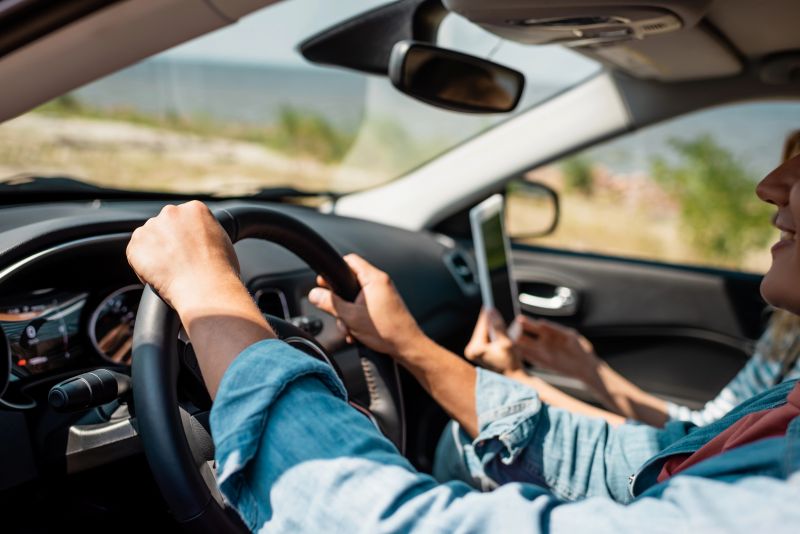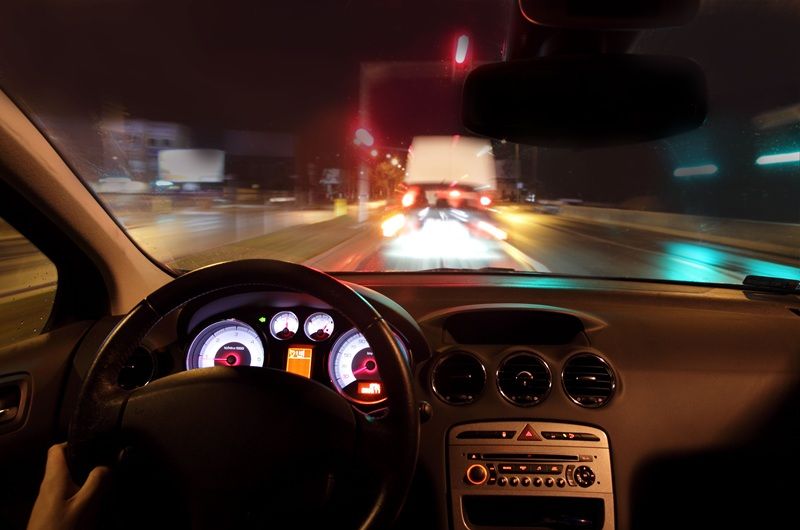Facing reckless driving in Fairfax County can feel like hitting a wall at full speed. It’s more than just a ticket it’s a criminal offense that can result in fines, license suspension, and even time behind bars. A conviction doesn’t just affect your driving record; it can follow you into job applications, background checks, and insurance rates.
In Virginia, reckless driving involves driving in a manner that endangers life, limb, or property. This can be from excessive speed, aggressive behavior, or certain violations like passing on a curve or ignoring traffic signals. The law focuses not just on how fast you are going but also on whether your driving creates a threat to public safety.
Continue reading to learn what qualifies as reckless driving under Virginia law, what consequences you might face, and the defense strategies that apply to your case. You’ll also find answers to common questions and learn how a reckless driving attorney helps clients protect their driving privileges.

Reckless Driving Under Virginia Law
Reckless driving in Virginia is more than just excessive speeding. It involves operating a motor vehicle recklessly or in a manner that endangers life, limb, or property, regardless of the posted speed limit. The charge applies to several specific violations, including:
- Operating a vehicle with defective brakes or one that is not under proper control qualifies as reckless driving.
- Overtaking with an obstructed view creates a safety risk and is illegal.
- Overloading the motor vehicle or overcrowding the front seat can affect visibility and control.
- Passing two motor vehicles side by side is reckless unless on a multi-lane highway or one-way road.
- Not stopping before merging onto a highway with approaching traffic is a violation.
- Speeding beyond what is safe for weather, traffic, or road conditions may lead to a reckless driving charge.
Unlike civil infractions, which result in fines and demerit points, a reckless driving conviction can lead to a criminal record. Understanding the legal penalties can help you recognize the risks and determine the proper steps.
Potential Consequences Of A Conviction
A reckless driving conviction carries significant penalties, such as heavy fines, license suspension, and jail time. It can also lead to a criminal record, which can affect employment, security clearances, and insurance rates. Knowing the consequences prepares you for what lies ahead.
Legal Penalties
The penalties depend on the circumstances of the case and whether there are aggravating factors. It can include excessive speed, prior offenses, or endangerment of others. Below is a clear breakdown of the legal punishments in Fairfax County:
- Fines up to $2,500 – The court determines the amount based on the severity of the offense.
- Jail time up to 12 months – Judges may impose jail sentences, especially for excessive speeding or repeat offenses.
- License suspension for up to six months – A conviction can lead to temporary loss of driving privileges.
- Six DMV demerit points – It remains on your driving record for 11 years.
- Potential felony charge – If a driver operates a vehicle with a suspended license, and that act of driving recklessly causes the death of another person, it can become a Class 6 felony.
Aside from these penalties, a reckless driving conviction results in a criminal record, which can tarnish your reputation and limit future opportunities. Understanding these legal consequences is critical when preparing your defense.
Criminal Record
A conviction creates a permanent criminal record, affecting job opportunities and housing applications. Some employers, especially in government or driving-related fields, may reject applicants with such records. Moreover, expungement is only possible if the charge is dismissed or you are found not guilty.
Aggressive Driving & Additional Penalties
Aggressive driving is closely related to reckless driving and carries additional penalties. It involves committing multiple traffic offenses with the intent to harass, intimidate, or endanger another driver. The charge includes violations such as:
- Following too closely – Driving too close to another vehicle can create a safety hazard.
- Improper passing – Passing another car in an unsafe or unlawful manner is a violation.
- Failing to yield right-of-way – Not yielding when required can cause dangerous traffic conflicts.
- Ignoring traffic control devices – Disregarding stop signs, signals, or lane markings can result in penalties.
These charges typically fall under a Class 2 misdemeanor, but proving intent to injure raises them to a Class 1 misdemeanor. These penalties highlight the importance of an effective defense. Knowing your options can help you minimize the impact of a conviction.
Effective Defense Strategies Against The Charges
A strong defense can help you fight a reckless driving charge and improve your chances of a better outcome. The proper approach depends on the details of your case, including the circumstances of the stop and the accuracy of the evidence. Below are some of the most effective strategies against reckless driving cases.
Challenge Speed Measurement Accuracy
Law enforcement officers use radar, LIDAR, and pacing methods to measure speed, but these tools can produce inaccurate readings. If the officer fails to provide recent calibration records or misuses the device, you can challenge the accuracy of the speed reading.
Prove Faulty Speedometer Readings
A malfunctioning speedometer can serve as a valid defense against a reckless driving charge. Some drivers unknowingly rely on inaccurate readings, leading to unintentional excessive speeding. A mechanic can inspect and confirm the faulty speedometer, which may convince the court to reduce the charge to a lesser offense.
Argue Road Or Weather Conditions
Hazardous conditions like heavy rain, ice, or fog can impact driving behavior and influence a driver’s response. Poor visibility, obstructed road signs, or sudden traffic changes may require quick adjustments. If these factors played a role, you may argue that you are responding to the conditions rather than acting recklessly.
Aside from knowing defense strategies, understanding common concerns can help you prepare for your case. Additional insights can clarify legal procedures, potential outcomes, and the proper steps.
FAQs About Reckless Driving In Fairfax County
Understanding reckless driving laws in Fairfax County can help you make informed decisions about your case. Many drivers face uncertainty about court procedures, possible outcomes, and legal options. Below are answers to common concerns that can provide clarity.
Can A Reckless Driving Charge Be Reduced To A Lesser Offense?
In certain cases, a violation can be reduced to improper driving, which is a traffic infraction rather than a criminal offense. The court considers factors such as speed, driving behavior, and potential risks posed to others. When successful, the reduction of the charge to improper driving significantly lowers the penalties, including:
- A fine of up to $500 instead of the maximum $2,500.
- Three DMV demerit points instead of six.
- No criminal record, as improper driving is a civil infraction.
A judge may determine that reckless driving does not apply based on the evidence presented at trial. However, a prosecutor can also agree to reduce the charge before the court’s decision. If you have a clean driving record, no prior offenses, or mitigating circumstances, your attorney may negotiate a reduction to improper driving.
Does Reckless Driving Apply To Private Property?
Yes, Virginia law allows reckless driving charges on private property in certain situations. Law enforcement can issue charges for violations in parking lots, private business driveways, and other publicly accessible areas. This means that the law applies even if the incident did not occur on a public roadway.
How Can A Reckless Driving Attorney Support Defendants?
Facing a crime can be overwhelming, but an attorney can provide guidance and work to reduce the impact on your record. An experienced attorney understands Virginia law and can build a strong defense based on the circumstances of your case.
- Protect your rights – An attorney ensures that law enforcement follows proper procedures and that your legal rights are not violated.
- Employ the proper defense – A lawyer analyzes the facts to determine a defense strategy based on the circumstances.
- Negotiate for a reduced charge – Legal representation increases the likelihood of reducing charges, minimizing penalties, and avoiding a criminal record.
Having legal counsel on your side can make a difference in the outcome of your case. With their support, you can challenge the charges, protect your record, and work toward a more favorable outcome. Their guidance can help you avoid unnecessary penalties and navigate the legal process with confidence.
Fairfax County Criminal Attorneys Aggressively Fights For You
Reckless driving in Virginia is a criminal offense that carries severe penalties, including steep fines, license suspension, and even possible jail time. A conviction stays on your record permanently, which can affect various aspects of your life, such as your job and insurance premiums. That’s why it’s important to take immediate action to protect your future.
At Fairfax County Criminal Attorneys, we defend clients facing reckless driving charges in Virginia with precision and focus. Our legal team builds strong defense strategies to challenge the prosecution’s case and protect your driving privileges and criminal record. We analyze every detail, question speed measurement accuracy, examine road conditions, and identify procedural errors by law enforcement.
With extensive experience in Virginia traffic laws, we offer aggressive legal representation tailored to your circumstances. Our team works to reduce penalties, prevent license suspensions, and keep a conviction off your record. Contact Fairfax County Criminal Attorneys today for a consultation let us stand by you and protect what matters most.





